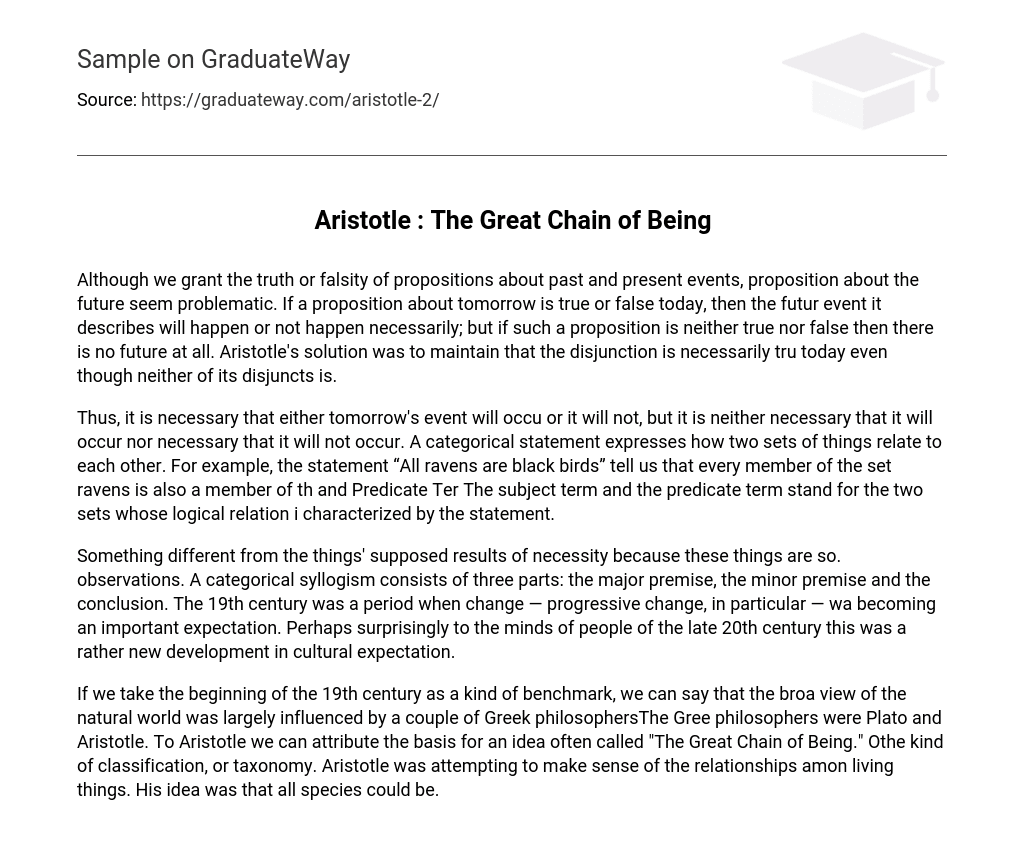Although we grant the truth or falsity of propositions about past and present events, proposition about the future seem problematic. If a proposition about tomorrow is true or false today, then the futur event it describes will happen or not happen necessarily; but if such a proposition is neither true nor false then there is no future at all. Aristotle’s solution was to maintain that the disjunction is necessarily tru today even though neither of its disjuncts is.
Thus, it is necessary that either tomorrow’s event will occu or it will not, but it is neither necessary that it will occur nor necessary that it will not occur. A categorical statement expresses how two sets of things relate to each other. For example, the statement “All ravens are black birds” tell us that every member of the set ravens is also a member of th and Predicate Ter The subject term and the predicate term stand for the two sets whose logical relation i characterized by the statement.
Something different from the things’ supposed results of necessity because these things are so. observations. A categorical syllogism consists of three parts: the major premise, the minor premise and the conclusion. The 19th century was a period when change — progressive change, in particular — wa becoming an important expectation. Perhaps surprisingly to the minds of people of the late 20th century this was a rather new development in cultural expectation.
If we take the beginning of the 19th century as a kind of benchmark, we can say that the broa view of the natural world was largely influenced by a couple of Greek philosophersThe Gree philosophers were Plato and Aristotle. To Aristotle we can attribute the basis for an idea often called “The Great Chain of Being.” Othe kind of classification, or taxonomy. Aristotle was attempting to make sense of the relationships amon living things. His idea was that all species could be.





